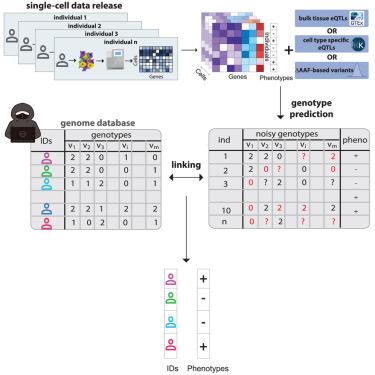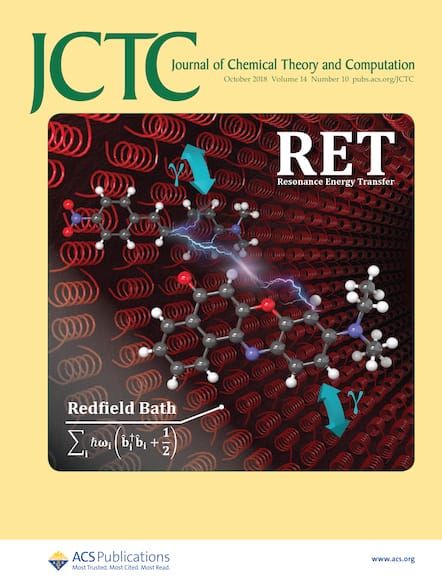Private information leakage from single-cell count matrices
IF 5.7
1区 化学
Q2 CHEMISTRY, PHYSICAL
引用次数: 0
Abstract
The increase in publicly available human single-cell datasets, encompassing millions of cells from many donors, has significantly enhanced our understanding of complex biological processes. However, the accessibility of these datasets raises significant privacy concerns. Due to the inherent noise in single-cell measurements and the scarcity of population-scale single-cell datasets, recent private information quantification studies have focused on bulk gene expression data sharing. To address this gap, we demonstrate that individuals in single-cell gene expression datasets are vulnerable to linking attacks, where attackers can infer their sensitive phenotypic information using publicly available tissue or cell-type-specific expression quantitative trait loci (eQTLs) information. We further develop a method for genotype prediction and genotype-phenotype linking that remains effective without relying on eQTL information. We show that variants from one study can be exploited to uncover private information about individuals in another study.

单细胞计数矩阵的私人信息泄露
公开的人类单细胞数据集越来越多,包括来自许多捐献者的数百万个细胞,这极大地促进了我们对复杂生物过程的了解。然而,这些数据集的可获取性也引起了人们对隐私的极大关注。由于单细胞测量中固有的噪声和群体尺度单细胞数据集的稀缺性,最近的隐私信息量化研究主要集中在批量基因表达数据共享上。为了弥补这一不足,我们证明了单细胞基因表达数据集中的个体容易受到链接攻击,攻击者可以利用公开的组织或细胞类型特异性表达定量性状位点(eQTLs)信息推断出他们的敏感表型信息。我们进一步开发了一种基因型预测和基因型与表型连接的方法,这种方法在不依赖 eQTL 信息的情况下依然有效。我们的研究表明,一项研究中的变异可以用来揭示另一项研究中个体的私人信息。
本文章由计算机程序翻译,如有差异,请以英文原文为准。
求助全文
约1分钟内获得全文
求助全文
来源期刊

Journal of Chemical Theory and Computation
化学-物理:原子、分子和化学物理
CiteScore
9.90
自引率
16.40%
发文量
568
审稿时长
1 months
期刊介绍:
The Journal of Chemical Theory and Computation invites new and original contributions with the understanding that, if accepted, they will not be published elsewhere. Papers reporting new theories, methodology, and/or important applications in quantum electronic structure, molecular dynamics, and statistical mechanics are appropriate for submission to this Journal. Specific topics include advances in or applications of ab initio quantum mechanics, density functional theory, design and properties of new materials, surface science, Monte Carlo simulations, solvation models, QM/MM calculations, biomolecular structure prediction, and molecular dynamics in the broadest sense including gas-phase dynamics, ab initio dynamics, biomolecular dynamics, and protein folding. The Journal does not consider papers that are straightforward applications of known methods including DFT and molecular dynamics. The Journal favors submissions that include advances in theory or methodology with applications to compelling problems.
 求助内容:
求助内容: 应助结果提醒方式:
应助结果提醒方式:


